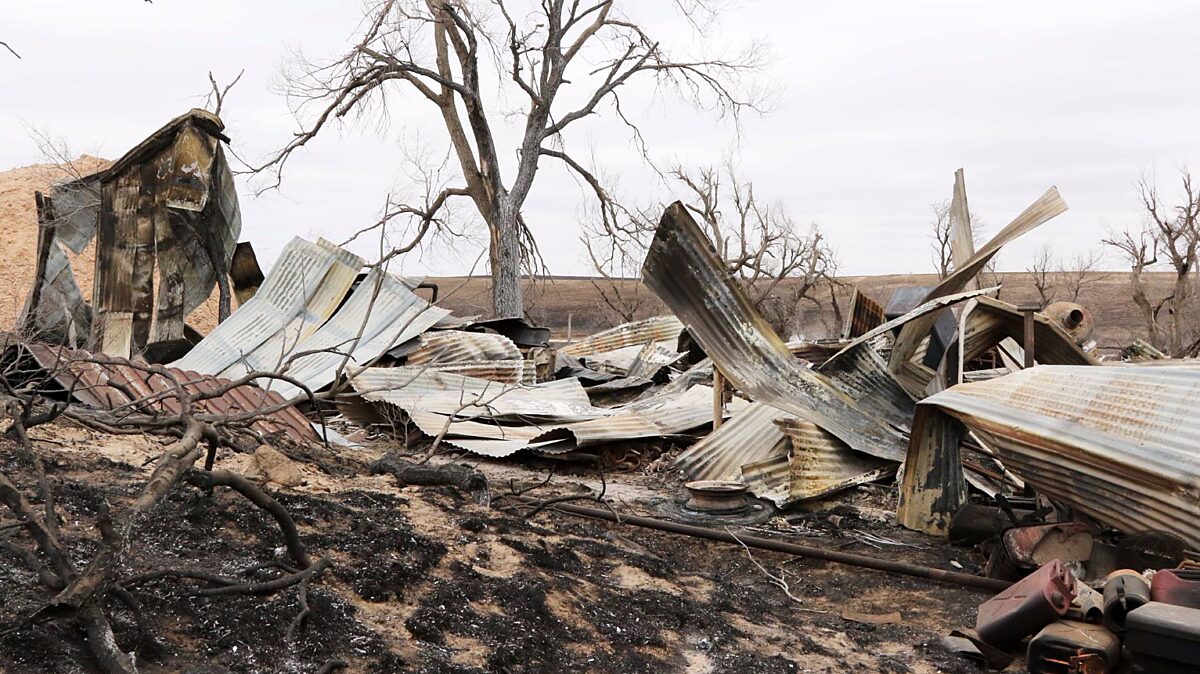Senate Passes Farm Bureau-Backed Disaster Bill, House Approval Expected Soon
TOPICS
Disaster ReliefErin Anthony
Director, Communications

photo credit: Texas Farm Bureau, Used with Permission
Erin Anthony
Director, Communications
Farmers and ranchers nationwide are calling on the House to follow the Senate’s lead in passing a disaster assistance bill that will help them and their rural communities recover from devastating weather events in recent years.
"Farms across the country endured an incredibly difficult year in 2018 and the trend continues in 2019 with challenging market prices and destructive weather conditions. Historic hurricanes Florence and Michael, with unprecedented wildfires, flooding and other natural disasters, devastated agricultural regions throughout the nation," American Farm Bureau Federation President Zippy Duvall said in letter urging members of the House and Senate to support the supplemental disaster relief bill.
Estimated agricultural losses in Alabama, Florida, Georgia, North Carolina and South Carolina alone total nearly $5.5 billion. Nebraska, Iowa and Missouri currently estimate losses at more than $3 billion, but with recovery efforts ongoing, the full impact for these Midwestern farmers will likely increase.
“For many farmers, these events have meant near-complete losses,” Duvall wrote.
The supplemental disaster relief bill, passed by the Senate yesterday and expected to be approved by the House soon, includes $3.005 billion administered through the Wildfires and Hurricanes Indemnity Program for necessary expenses related to losses of crops – including on-farm stored commodities and crops that could not be planted in 2019 – trees, bushes, vines, milk and harvested adulterated wine grapes caused by natural disasters in 2018 and 2019. Losses of peach and blueberry crops in 2017 due to extreme cold and help for producers impacted by Tropical Storm Cindy will also fall under WHIP.
Along with funding for the Nutrition Assistance for Puerto Rico program, the bill contains assistance for non-industrial timber restoration, rural watershed recovery and the rehabilitation of farmland damaged by natural disasters. The measure also provides money for the Rural Development Community Facilities Grant Program, which funds the development of essential community facilities in rural areas.
President Trump has indicated he will sign the bill.
The supplemental disaster relief bill includes:
- Farm Disaster Assistance: $3.005 billion for farm disaster assistance administered through the Wildfires and Hurricanes Indemnity Program. This funding will benefit producers for necessary expenses related to losses of crops (including on-farm stored commodities, crops that were prevented from being planted in 2019), trees, bushes, vines, milk and harvested adulterated wine grapes caused by natural disasters in 2018 and 2019. It also includes agricultural losses of peach and blueberry crops in 2017 due to extreme cold and producers impacted by Tropical Storm Cindy.
- Emergency Forest Restoration Program: $480 million for non-industrial timber restoration.
- Emergency Watershed Protection Program: $435 million for rural watershed recovery.
- Emergency Conservation Program: $558 million for farmers and ranchers to rehabilitate farmland damaged by natural disasters.
- Community Facilities Grant Program: $150 million for the Rural Development Community Facilities Grant Program, which funds the development of essential community facilities in rural areas.
- Puerto Rico Nutrition Assistance: $600 million for the Nutrition Assistance for Puerto Rico program.
- Market Facilitation Program adjusted gross income waiver: A waiver for the average adjusted gross income requirement for producer eligibility under the Market Facilitation Program. If 75% of the income comes from farming, ranching or forestry-related activities, then farmers earning above $900,000 a year in average adjusted gross income can participate in the Market Facilitation Program. Payments are capped at $125,000 per person or legal entity.
Trending Topics
VIEW ALL